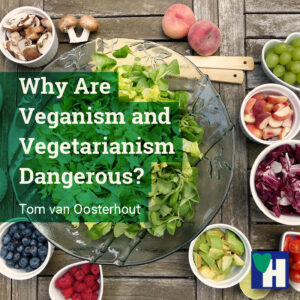
Why are veganism and vegetarianism dangerous? The first question to be asked is of course: for whom are veganism and vegetarianism dangerous?
The answer is simple and straightforward: veganism and vegetarianism are only dangerous for the multinational food industry.
The multinational food industry is responsible for 15% of human-produced greenhouse gas emissions.
Moreover, the multinational food industry is responsible for more than 90% of the destruction of the Amazon forests.
Greenhouse gas emissions and deforestation are both major causes of climate change.
This leaves us with the second question to be asked: why do we not all convert to veganism or vegetarianism?
Some of the links are affiliate links. As an affiliate associate, we earn a commission when you purchase any of the products offered through the shared links at no extra cost for you. This helps us maintain this website.
Table of contents
Why are veganism and vegetarianism dangerous?
When veganism and vegetarianism truly become mainstream, this undoubtedly means the end of the large-scale multinational food industry. The rise of veganism and vegetarianism is a huge danger for this industry. The companies involved will fight this danger with all the powers they got.
No animal products
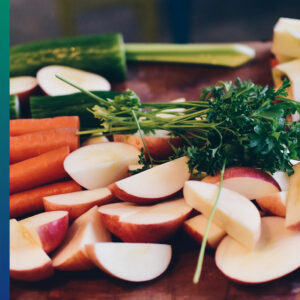
Vegans avoid animal products. Vegans do not eat eggs, dairy (e.g. milk and cheese), and honey. The use of leather and wool for clothes is also out of bounds.
Any vegan diet is plant-based. Vegans are primarily inspired by animal welfare. They are vehemently opposed to the exploitation of animals, no matter for what purpose.
Long-term research clearly indicates that vegans are substantially healthier than those who eat animal proteins. This fact is consistently ignored by dieticians, medical professionals, governments, and of course the multinational food industry.
Vegans are healthier because they eat lots of fruits and vegetables. Fruits and vegetables contain fibers, vitamins, and minerals. Fruits and vegetables lower blood pressure and LDL cholesterol.
Reduce meat consumption
Reducing meat consumption is one of the best ways to fight climate change and to support biodiversity. Vegetarians do not eat meat or fish.
Vegetarianism is an excellent way to reduce meat consumption. The next best thing is to eat organic meat. However, organic meat is at least twice as expensive as conventional meat.
The advantage of this economic threshold is that people automatically reduce the quantity of meat they eat. This price difference is totally justifiable given the fact that the environmental costs of the production of organic meat are not transferred to future generations.
Low prices of meat indicate that it is produced in the so-called bio-industry. This is an animal-degrading type of animal husbandry. Moreover, the meat is stuffed with very unhealthy growth hormones and huge amounts of salt and water.
The food these animals are fed, as mentioned earlier, contributes in a major way to the destruction of the Amazon rainforest.
Related: What are the Positive Effects of Deforestation or are the Negative Effects Worse?
Reduce dairy consumption

For many years, dairy has been estimated as healthy. However, for example, milk lost a lot of its attraction. The environmental problems of the production of milk have already been introduced above with the discussion of meat consumption.
Cow’s milk, or dairy more in general, cannot prevent osteoporosis. On the contrary, it aggravates osteoporosis. Cow’s milk also aggravates respiratory and digestive problems. It sticks to the inside of the esophagus and the stomach and intestines, reducing proper digestion.
Moreover, there are many protein alternatives. Such as coconut, almond, and oat milk. We also eat a lot of nuts and seeds, as protein supplements.
However, soy is not a proper protein alternative. It contains disproportionate amounts of estrogen. These high levels of estrogen impair immune systems. And the unwanted effects of cow’s milk are similar to soy milk.
Related: There are Many Ideal Protein Alternatives for Cow’s Milk
Overweight and obesity
There are 3 main reasons to limit animal-based food: the environmental problems associated with this type of food, animal welfare issues, and the threats to our personal health.
These are also the 3 main motives for people to choose a vegan or vegetarian diet. The 3 major motives to refuse to convert to such a diet are the enjoyment of animal-based food, the ease of preparation and consumption, and the financial costs.
Health seems to be a major reason for carnivores to consider a vegan or vegetarian diet. Paradoxically, reducing weight is no motive for them. Although already more than 50% of the population suffers from overweight and obesity.
Whatever one could say of vegans and vegetarians, they rarely suffer from overweight and obesity.
More and more mainstream
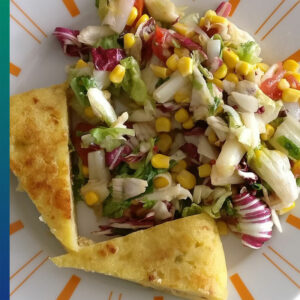
Hannie and I are semi-vegetarians. We have been so for a very long time. We do eat chicken or turkey and fish, all preferably organic, and always in very limited amounts and usually once a week.
When we started to eat out together, in the 80s of the last century, our vegetarianism was a huge problem.
During a vacation in a resort in these early years, the kitchen had no idea what to serve us. So we ended up eating omelet and lettuce for 2 weeks in a row. I cannot recommend this.
Nowadays, veganism and vegetarianism are more and more mainstream. During a holiday in the city of Valencia, a couple of weeks ago, we ate at various vegetarian and vegan restaurants and the food was delicious.
Unfortunately, there are hardly any organic restaurants.
Experiment
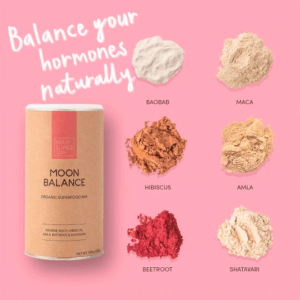
To experiment with veganism and vegetarianism at times is a very worthwhile challenge. For some reason, many people believe that vegan and vegetarian meals are gross, as our grandson says.
Admittedly, it takes some effort to change our ways. To change our food tastes and cooking habits. It’s no different when you experiment with vegan or vegetarian.
It’s always difficult to change ingrained habits. More specifically when it comes to the food we eat. This is why it’s important to experiment.
For me, this is very easy. I really love to experiment with the food I prepare. At home, in the kitchen, I am the chef. I appreciate cooking vegetarian or vegan the more because I notice that it has a huge impact on my health and because Hannie appreciates the food I prepare.
Related: Review of Nutritiously – How to Change Lifestyle Habits Sustainably
Why are veganism and vegetarianism dangerous?
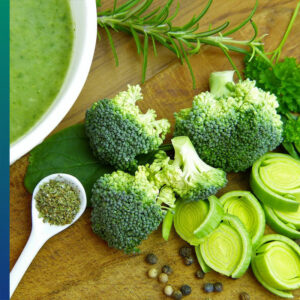
Unfortunately, most people consider only their own beliefs to be the measure of all things. It’s this belief that is reinforced and exploited by commercial enterprises.
In their advertising, they emphasize our freedom, that we can decide for ourselves what we want and what is important. Of course, this is a very appealing message.
However, this is also the type of belief that deprecates the value of the environment, biodiversity, the climate, and ultimately our personal health and – believe it or not – our personal freedom.
The COVID-pandemic is truly the most significant proof of how our shortsightedness restricts our freedom.
What motive do you have to eat vegan or vegetarian? Please let us know in the comment box below.

Switched to a vegetarian diet almost ten years ago and never regretted it; food tastes better, I get to be more creative in the kitchen since I don’t rely on having some chicken breast with veggies. Easy, healthy, nutritious and way more affordable.
Hi Joshua,
Thank you for your comment. Always appreciated. Good of you to offer some core advantages of a vegetarian diet: better taste, more variety in food and easier to handle, more healthy, more nutritious, and more cost-effective.
Okay, I admit, these are not just some core advantages, I guess these are all the core advantages. Glad you’re happy about your choice.
Stay safe, stay healthy, and have a nice day.
Regards,
Tom